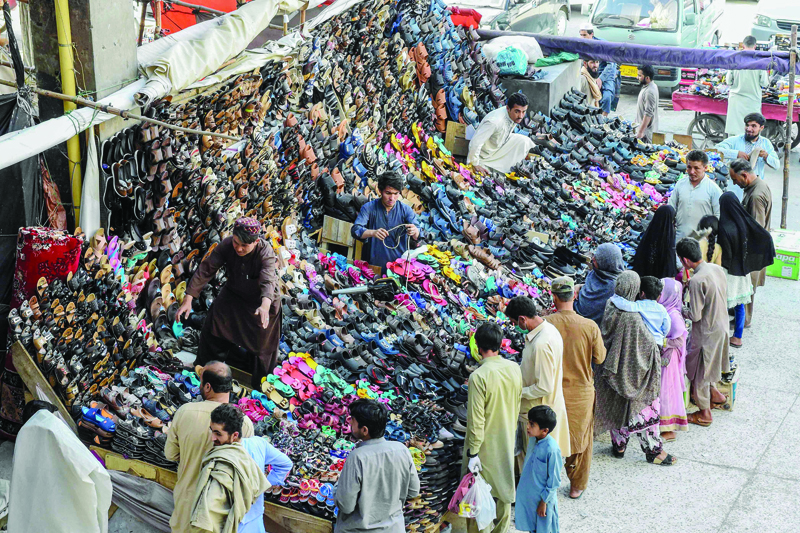
ISLAMABAD: Pakistanis crowded markets on Saturday after a nationwide coronavirus lockdown was eased, despite the country declaring its second highest daily infection toll. Prime Minister Imran Khan has allowed businesses to reopen in phases from the weekend, citing the economic havoc the virus restrictions have wreaked on the improvised nation. In the garrison city of Rawalpindi, thousands of shoppers were preparing for Eid, which follows the Muslim fasting month of Ramadan, with many flouting social distancing rules and advice to wear masks.
In the southern port city of Karachi shopkeepers set out their wares of shoes, clothes, bangles and fabrics, while in the capital Islamabad shoppers stood in tightly-packed queues as they waited for stores to open. Similar scenes were played out in Lahore, Quetta and Peshawar. Omar Shirazi, a banker shopping for clothes with his daughter in Rawalpindi, welcomed the move. "Eid is approaching," he said. "We have to buy new garments for our children. It's the responsibility of people to comply with rules and wear safety gear."
Tehmina Sattar, who was shopping with her sister and sons, was more cautious. "We are happy with this decision but at the same time I have a fear in my heart that if this disease spreads it could be devastating. People here are not taking preventative measures." The country's Information Minister Shibli Faraz warned Saturday that the lockdown on businesses would be reimposed if safety guidelines were not followed, after authorities reported more than 1,600 new cases in the past 24 hours.
Infections have been rising steadily as testing has increased, with more than 27,000 cases and more than 600 deaths recorded in the nation of over 210 million. The easing comes as many across the country have openly ignored restrictions on gatherings in public during the past month, especially during the evenings as people celebrate Ramadan. Schools will remain closed until mid-July however, while there are no plans to restart public transportation or domestic flights. - AFP









